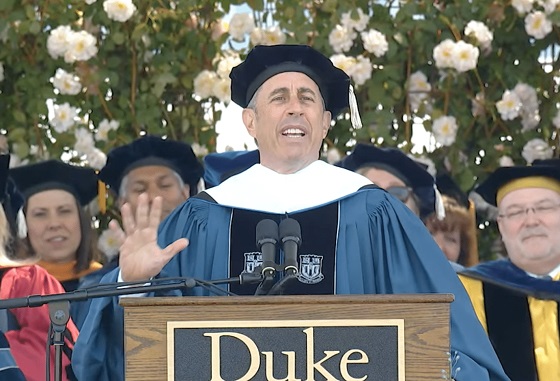Bruce Dowbiggin
Canada’s Great Artists Don’t Need Trudeau’s CRTC To Succeed

“I know who the gatekeepers are. They are still here, telling us in Bill C-11 that we have progressed, that we are more understanding and that our value system has evolved to be inclusive. This statement is a transparent endowment to those whose support they need and whom they desire to influence, but it is a terrible insult to the great writers in my country that I know.” —David Adams Richards
One of the gratifications in writing is finding someone who can express your feelings in a superior fashion. Even more gratifying is when a friend finds the perfect expression of those thoughts. Imagine my happiness to see my old friend David Adams Richards—raconteur, novelist and cranky Canadian loyalist— take the floor in the Senate to defenestrate the execrable Bill C-11. (His prior work helped capsize C-10)
So please forgive us if we quote liberally from his January speech in the upper chamber on the attempt to turn the CRTC into a national ministry for public enlightenment or the culture section of a Central Committee.
David’s lucid, heartfelt resistance to ceding the power of censorship to the sort of bureaucracy that can’t get you a passport or remove fallen trees from a VIA Rail line is impertinent and necessary. These are the very reasons why he— or those like him who complain— will be among the first targeted when some Ottawa trust-fund plutocrat needs a whipping post to hold off truckers or farmers or whichever “others” come next to the doors of Parliament to make the PM’s acquaintance.

A product of New Brunswick’s Miramichi, Richards knows those “others” the prime minister sought to make non-persons. “I grew up in a place in the east of Canada called the Maritimes and have fought for every inch of soil in my fictional world that, for years, dismissed who I was and especially whom I wrote about.”
From his time jousting with the Canada Council or New Brunswick paper pushers he knows the crushing power of bureaucrats and time servers who will want to make themselves, not the artists, the story. “We have filled the world with our talent, but not because of the Minister of Heritage. We have spread our books and movies across the world, but it is not because of some formula.
“We have insulted so many of our authors, singers, actors and painters by not paying attention to them, and then claiming them when they go somewhere else. They come back to get the Order of Canada and to be feted at Rideau Hall. Drake is known worldwide not because of the Canadian Radio-television and Telecommunications Commission, or CRTC. Thank God Drake was not up to them, or Leonard Cohen or Gordon Lightfoot either.”

This notion of success without a committee is heresy, of course. Particularly in an age where the pews of civil servants are being filled with radicals and quota appointees who see the process, not the outcome, as the point. Twenty years ago the grey suits and time servers on arts panels were often former artists and creators. Now they are virtue-saturated bullies who think the idea of Black Out nights at the theatre represents racial progress.
They, like Mao, believe that unification is achieved through relentless division and struggle “by the socialist system itself”— in other words, under the power and influence of the cult and its doctrine. Artistic expression under C-11 will come to serve the ongoing struggle for a more perfect culture. Those not fitting the prescription will be cast into a snow bank of irrelevance.

Richards hears— and fears— their approach. “I think, overall, we have lately become a land of scapegoaters and finger pointers, offering accusations and shame while believing we are a woke society. Cultural committees are based as much in bias and fear as in anything else. I’ve seen enough artistic committees to know that.”
It was hoped that the gross overreach in the Emergency Measures from this time last year might have swayed Mr. Trudeau and his faculty lounge of compliant stooges from another attempt at locking down more of what was once a liberal, free society. Guess again. Like all good party members and fellow travellers Trudeau’s constituency is elsewhere, not in Canada.
Egged on by the one-world government pep squad the PM believes one flaw disqualifies an entire system. His locked-down mind can’t see that the system flaws he fears so much are in fact the diversity he craves. They signify our vibrancy. He calls it disinformation. “The very bill suggests a favouritism brought forward by a notional knowledge of what Canada should be and what groups we are now allowed to blame.”

Richards concludes, “This is not opening the gate to greatness but only to compliance. The writers I know don’t need to advance to fit an agenda, and neither do the songwriters or bloggers. When this bill mentions how we have evolved, it is simply a suggestion to comply.”
Vive la Resistance C-11.
Sign up today for Not The Public Broadcaster newsletters. Hot takes/ cool slants on sports and current affairs. Have the latest columns delivered to your mail box. Tell your friends to join, too. Always provocative, always independent. https://share.hsforms.com/16edbhhC3TTKg6jAaRyP7rActsj5
Bruce Dowbiggin @dowbboy is the editor of Not The Public Broadcaster A two-time winner of the Gemini Award as Canada’s top television sports broadcaster, he’s a regular contributor to Sirius XM Canada Talks Ch. 167. Inexact Science: The Six Most Compelling Draft Years In NHL History, his new book with his son Evan, was voted the seventh-best professional hockey book of all time by bookauthority.org . His 2004 book Money Players was voted sixth best on the same list, and is available via http://brucedowbigginbooks.ca/book-personalaccount.aspx
Bruce Dowbiggin
Jerry Came to See The Babies. And They Walked Out On Him

Cometh the hour, cometh the comedian. Or, you can learn a lot about a demographic by what makes them laugh.
The legacy/ lunacy media schvitzed itself over a few furious sociology majors and look-at-me drama queens walking out on Jerry Seinfeld’s commencement address at Duke University last weekend. But the significance of his admission that he was 70 was probably far more newsworthy to those now in retirement, binge-watching his eponymous TV series on one of those down-the-dial channels.
If we had a dollar for every Boomer who said, “Seinfeld is 70?” while watching the address we’d be Warren-Buffett-rich this morning. He doesn’t look like any 70 year olds we know. Fifty? Maybe. But listening to his familiar delivery, the mocking on his honorary degree costume, it was easy to believe that we, too, are much younger than our blood-thinner prescriptions say.
It also pointed out the evolution of Boomers’ comedic tastes. When they came of age in the late 1960s/ early 1970s Woody Allen best profiled as his generation’s comedic muse. With a dozen classic movies ranging from What’s New Pussycat (1965) through Play It Again Sam (1972) to Annie Hall (1977) Allen’s self-deprecating nebbish captured the romantic/ridiculous self-image of Boomers with “Some drink deeply from the river of knowledge. Others only gargle”.

The neurotic, insecure Allen then decided to become Ingmar Bergman, and Boomers— now assembling jobs, children and first spouses— moved on. But for that 12-year span the bedraggled standup comedian was the go-to with lines like “Just because you’re paranoid doesn’t mean they aren’t out to get you” and “The only love that lasts is unrequited love.”
Woody’s pointed contemporary political references in those years were few (conflating “D’you” for “Jew” with Tony Roberts in Manhattan) and self-deflating (see Annie Hall). His most prominent political jabs were framed in absurdist material like Love And Death and Bananas. Culturally he was merciless but affectionate about his Brooklyn upbringing. In short his were perfect date movies for Boomers seeking love to advertise their pretensions.
Flash forward from Woody to Seinfeld (created with Larry David) which was anti-romantic in the extreme. The characters were sociopaths. The situations often cringeworthy. The 24-minute formula harkened back to Lucy and the Honeymooners. And while schlock like Friends trod the same ground it was Seinfeld that somehow captured the Boomer zeitgeist.
Why? Boomers going through middle age were too disillusioned with how life was turning out to romanticize anymore. The self-obsessed characters were people they knew from work, school and dealing with government. Smirking Bill Clinton was the face of an era. “When we did my show in the 90s, it was so easy to make fun of things. It was so easy,” Seinfeld told Amy Schumer.
Significantly, Seinfeld the Show was cultural. Or quasi-cultural. It was never about politics per se. It was about the people who thwart you in life. Whose vanity ruins your plans from school days. Who go 50 mph in the left lane. “When is Jerry going to see the baby?” It rarely challenged its fans on an emotional level. It was mostly about navigating madness.
And often about the most mundane elements of life. The address on the weekend contained The Seinfeld Doctrine of Lowered Expectations. “It’s easy to fall in love with people. I suggest falling in love with anything and everything, every chance you get. Fall in love with your coffee, your sneakers, your blue zone parking space. I’ve had a lot of fun in life falling in love with stupid, meaningless physical objects.
“The object I love the most is the clear-barrel Bic pen — $1.29 for a box of 10. I can fall in love with a car turn signal switch that has a nice feel to it, a pizza crust that collapses with just the right amount of pressure. I have truly spent my life focusing on the smallest things imaginable, completely oblivious to all the big issues of living.”
Reaching across the generations Seinfeld delivered Dad jokes and bromides to kids who education probably cost $100 K a year. “I think it is also wonderful that you care so much about not hurting other people’s feelings in the million and one ways we all do that,” he said. Then he explained why that might be a fruitless pursuit. Not in Curb Your Enthusiasm darkness. But sobering.
That’s why it was in character for him to let the furious demonstrators depart at Duke without comment. So was appearing at Duke, the Ivy League of Tobacco Road, founded by the people who made jillions selling nicotine. And why he let them garb him like Thomas Cromwell in the absurd 16th century cape and hat so he could score few laughs.

Because laughter is his means of dealing with jerks like the outbound Hamas crowd. “What I need to tell you as a comedian: Do not lose your sense of humour. You can have no idea at this point in your life how much you are going to need it to get through. Not enough of life makes sense for you to be able to survive it without humour.”
Yes, He has been vocal lately about the effect of political correctness ruining TV comedy. Drawing flak from former friends and fans who are in the Biden re-education camps at the moment. But his annoyance at ruining an art form far outweighed any complaints about Covid and Ukraine.
As opposed to the nihilism of his former partner David, his insouciance and comic patter represent an antidote for where most of his original fans are at the moment. Woody Allen, their former idol, is now seen as a pedo and a failed nouveau vage auteur. Disillusioned with virus lies, electoral shenanigans and soaring prices, Boomers on a pension are unanchored, floating through what used to be North American society (when only women had babies).
In fact, Boomer spectators watching Seinfeld’s 17-minute speech maybe summed it up for themselves by recalling the Seinfeld mantra, “It was a show about nothing.” And they’d be right. Jerry is the man for those times.
Bruce Dowbiggin @dowbboy is the publisher of Not The Public Broadcaster A two-time winner of the Gemini Award as Canada’s top television sports broadcaster, he’s a regular contributor to Sirius XM Canada Talks Ch. 167. Now for pre-order, new from the team of Evan & Bruce Dowbiggin . Deal With It: The Trades That Stunned The NHL & Changed Hockey. From Espo to Boston in 1967 to Gretz in L.A. in 1988 to Patrick Roy leaving Montreal in 1995, the stories behind the story. Launching in paperback and Kindle on #Amazon this week. Destined to be a hockey best seller. https://www.amazon.ca/Deal-Trades-Stunned-Changed-Hockey-ebook/dp/B0D236NB35/
Bruce Dowbiggin
Why Do The Same Few Always Get The Best Sports Scoops?

The Toronto Maple Leafs made the “what colour is that green light?” decision to fire their head coach Sheldon Keefe last week. The removal of Keefe after five years followed a dispiriting first-round playoff series loss to a very ordinary Boston Bruins team. Coaching may or may not have been the root cause of that loss. (Keefe himself admitted “teams are waiting for the Leafs to beat themselves”.)
The real reason for the firing is 1967, and we don’t think we need add more than that.
In essence, the management of MLSE— the owner of the Maple Leafs and a lot of other sports stuff in Toronto— needed to throw a body to the baying hounds of disappointment. Also known as Leafs Nation. Newly minted CEO Keith Pelley, fresh from the PGA Tour/ LIV psychodrama, was certainly not going to pay the price.
Nor was GM Brad Treliving who has only been on the job for two seasons. The key decisions on Toronto’s lopsided salary cap were decided long before Treliving occupied his desk. That left two people in vulnerable positions. 1) Maple Leafs president Brendan Shanahan, who has been drawing an MLSE cheque for a decade. 2) Keefe.
When was the last time you saw a coach fire a team president? Precisely. Keefe joins the list of (briefly) unemployed coaches who circulate in the NHL like McKinsey consultants. Shanahan gets a lukewarm mulligan from Pelley. But after the failure of the Kyle Dubas experiment— “who needs experience?”— and now just a single playoff series win in a decade Shanny’s best-before date has arrived.

Toronto Maple Leafs president Brendan Shanahan attends a news conference in Toronto on April 14, 2014. Toronto Maple Leafs president Brendan Shanahan said Peter Horachek will remain the team’s interim head coach until the end of the season. Shanahan met the media Friday for the first time since coach Randy Carlyle was fired on Tuesday. THE CANADIAN PRESS/Chris Young
Depending on who he and Treliving enlist to coach— remember, Mike Babcock was too tough and Keefe was probably too player friendly— it had better produce instant results. Because Shanny, the pride of Mimico, is out of chances. The coach choice will also be affected by whichever player or players that management decides are superfluous to ending the Leafs’ ridiculous run of misery.
The Leafs brass’ press conference last Thursday did little to shed light on what happens after Keefe’s expulsion. Just a lot of MBA determinism on a bed of baffle gab. A crabby Steve Simmons question/rant briefly threatened the harmony of the moment, but order was restored. And the media bitching switched from the press box to social media and podcasts.
Speaking of the fourth estate, the other unmentioned aspect of this story— indeed every story in the NHL these days— is just how it was revealed to the public. When people sipped their morning Tim’s or Starbucks the (almost) coincident bulletins came down the social media pike about Keefe’s dismissal.
Predictably, Chris Johnston of Sportsnet and Daren Dreger of TSN announced the breaking news within heart beats of each other. While there had been speculation on Keefe’s fate for days, the announcement coming from the networks duo confirmed the story in the minds of the industry. That allowed everyone else drawing a cheque as a hockey journalist to pile in and swarm the dead body.
In today’s sports journalism, where social media has replaced newspapers, scoops are governed by a protocol. There are the heralds— in the NHL it’s currently Johnston and Dreger— and then there are the disseminators. The days of a rabble of reporters all scrambling to get a story bigger than who-will-play-in-tonight’s-game are gone. Today, it’s a very narrow funnel for scoops.
It’s the same in the NFL where Ian Rappaport (NFL Network) and Adam Schefter (ESPN) monopolize the tasty scoops on behalf of their employers, who also happen to be NFL rights holders. In the NBA, Brian Windhorst (ESPN) has the inside rail when it comes to the LeBron James/ Steph Curry scoops. In MLB… it’s probably Ken Rosenthal (The Athletic) but no one cares about baseball anymore, do they?
The leagues like it this way, doling out stories to guys they can trust. None of this is criticism of Johnston or Dreger, who have deftly maneuvered themselves into the coveted “from their lips to your ears” spots. From our own experience we can remember the exhilaration of having the best source or sources on the really big stories. Like Johnston/ Dreger, we worked hard for a long time to develop those sources and only very reluctantly let anyone else horn in on our stories.
It was also our observation that this order of things journalistic suited a lot of reporters who either couldn’t get good sources or didn’t want the stress of being first on stuff. It was enough that, like the Keefe story, they’d get the goods eventually and most fans would not care who was first. So long as you had a take. So be it.
Some resentful types took potshots at our work if it upset their pals in the dressing room or the management suite. On the Stephen Ames/ Tiger Woods story in 2001, we had the late Pat Marsden tell us on air that we’d done a great job on Ames’ criticisms of Tiger. Only to hear him lambaste us— again on FAN 590— only minutes later as we listened driving home from the studio. But we digress.
Many reporters are complacent in playing the game, so long as their bosses didn’t enquire why they are getting scooped all the time by the same few rivals. With the death of daily newspapers that doesn’t happen much any longer. (Many editors today may only see stories when publication brings a libel notice.) For them a salty take is good enough.
The scoop business is also affected by the multiple roles now demanded of sports media types. In addition to their “day job” on a beat they also have to supply digital content and talk-back hits to the Mother Ship. Most also are feeding a weekly podcast, dictating time on air rather than time working the phone. There are only so many hours in a day to chase a story.
Better to play the Breaking News waiting game.
Bruce Dowbiggin @dowbboy is the publisher of Not The Public Broadcaster A two-time winner of the Gemini Award as Canada’s top television sports broadcaster, he’s a regular contributor to Sirius XM Canada Talks Ch. 167. Now for pre-order, new from the team of Evan & Bruce Dowbiggin . Deal With It: The Trades That Stunned The NHL & Changed Hockey. From Espo to Boston in 1967 to Gretz in L.A. in 1988 to Patrick Roy leaving Montreal in 1995, the stories behind the story. Launching in paperback and Kindle on #Amazon this week. Destined to be a hockey best seller. https://www.amazon.ca/Deal-Trades-Stunned-Changed-Hockey-ebook/dp/B0D236NB35/
-

 COVID-192 days ago
COVID-192 days agoJapan’s most senior cancer doctor: COVID shots are ‘essentially murder’
-

 Automotive1 day ago
Automotive1 day agoGovernments in Canada accelerate EV ‘investments’ as automakers reverse course
-

 Alberta1 day ago
Alberta1 day ago30 million contraband cigarettes valued at $25 million dollars seized in Alberta
-

 Automotive2 days ago
Automotive2 days agoRed States Sue California and the Biden Administration to Halt Electric Truck Mandates
-

 Alberta2 days ago
Alberta2 days agoPharmacist-led clinics improve access to health care: Lessons from Alberta
-

 Economy2 days ago
Economy2 days agoBiden signs suicidal ‘No Coal’ pact, while rest of world builds 1,000 new plants
-

 National1 day ago
National1 day agoTrudeau again blames ‘climate change’ for mostly man-made wildfires
-

 Canadian Energy Centre1 day ago
Canadian Energy Centre1 day agoTrans Mountain completion shows victory of good faith Indigenous consultation






